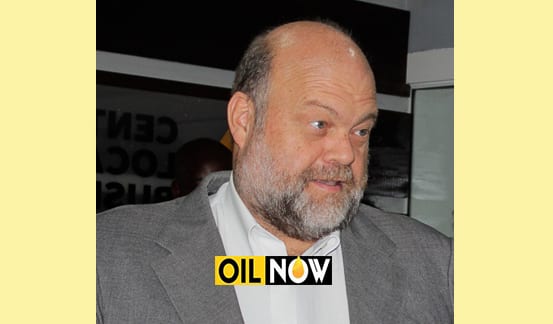US oil companies operating around the world face stiff penalties if they are found to be involved in bribery and other corrupt practices, and according to US Ambassador to Guyana, Perry Holloway, this serves as a disincentive for them to go rogue.
He said a complicated legal environment regulates ‘big’ US companies operating outside of the country, and serves to ensure that these companies are held to higher standards of transparency and accountability. “Oil companies, whoever they are, whether they are ExxonMobil…that operate outside the US, are subject to State and Federal Law,” he told OilNOW during a recent interview.
“There is a Federal Law called the Foreign Corrupt Practices Act (FCPA) that applies to all US companies, operating out of the US, especially the Oil and Gas industry and that has very stiff penalties for companies or individuals who accept bribes or engage in corrupt practices while overseas, and some cases could even include prison time,” the Ambassador stated.
Most of the US companies that are publicly traded, such as ExxonMobil, have for years recognized that it has a responsibility to its shareholders and therefore, doing business the right way, “actually makes good dollars and cents,” he said.
The FCPA makes it illegal for companies and their supervisors to influence foreign officials with any personal payments or rewards. It applies to any person who has a certain degree of connection to the United States and engages in foreign corrupt practices. The FCPA also applies to any act by U.S. businesses, foreign corporations trading securities in the U.S., American nationals, citizens, and residents acting in furtherance of a foreign corrupt practice whether or not they are physically present in the U.S.
“While I am aware that an individual can be corrupt, the companies, I believe, have realized that good sound transparent business practices make sense and make them money in the long run so I think serious US companies have gotten that over the last few decades and they try to adhere to that as well as adhere to the local laws,” Mr. Holloway indicated.
Under the FCPA, in January 2014, ALCOA paid $175 million in disgorgement of revenues and a fine of $209 million to settle charges that its Australian bauxite mining subsidiary retained an agent that made bribes to government officials in Bahrain and to officers of Aluminum Bahrain B.S.C. to secure long-term contracts to supply the company with bauxite ore. Then in 2015, the Goodyear Tire and Rubber Company “Goodyear” agreed to pay more than $16 million to settle FCPA charges that two of its African subsidiaries allegedly paid $3.2 million in bribes that generated $14,122,535 in illicit profits.
But since the election of Donald Trump as President of the United States, there has been uncertainty about how the new administration will impact enforcement of the FCPA. Mr. Trump and members of his administration have said that “overregulation,” puts U.S. businesses at a disadvantage in the global marketplace and the US President is on record as describing the FCPA as a “horrible law”. In April 2017, Attorney General Jeff Sessions traveled to an ethics lawyer’s conference to assure them that he would continue prosecutions under the FCPA, regardless of new SEC Chairman Jay Clayton’s expressed skepticism and of President Trump’s comments.
Ultimately, for countries like Guyana, developing a robust regulatory framework and establishing stiff anti-corruption laws for the oil and gas industry, and most importantly, the will and ability to enforce them, are the best safeguards against wrong-doing.



